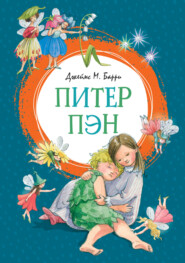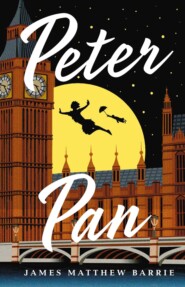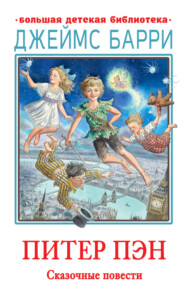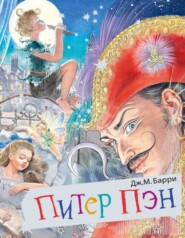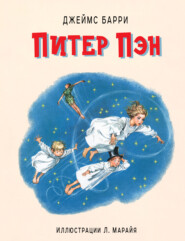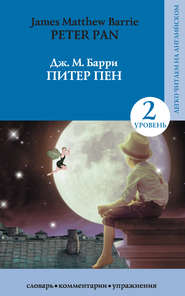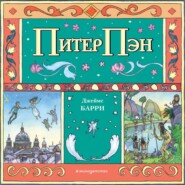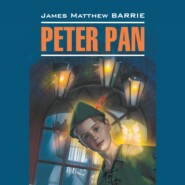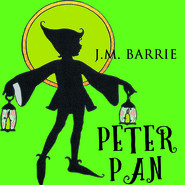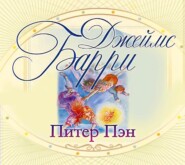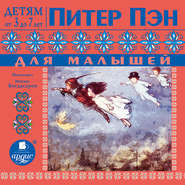По всем вопросам обращайтесь на: info@litportal.ru
(©) 2003-2024.
✖
Peter Pan
Автор
Год написания книги
2017
Настройки чтения
Размер шрифта
Высота строк
Поля
This was grumbling. “We complain of John,” cried the twins.
Tootles held up his hand. He was so much the humblest of them, indeed he was the only humble one, that Wendy was specially gentle with him.
“I don’t suppose,” Tootles said diffidently [bashfully or timidly], “that I could be father.”
“No, Tootles.”
Once Tootles began, which was not very often, he had a silly way of going on.
“As I can’t be father,” he said heavily, “I don’t suppose, Michael, you would let me be baby?”
“No, I won’t,” Michael rapped out. He was already in his basket.
“As I can’t be baby,” Tootles said, getting heavier and heavier and heavier, “do you think I could be a twin?”
“No, indeed,” replied the twins; “it’s awfully difficult to be a twin.”
“As I can’t be anything important,” said Tootles, “would any of you like to see me do a trick?”
“No,” they all replied.
Then at last he stopped. “I hadn’t really any hope,” he said.
The hateful telling broke out again.
“Slightly is coughing on the table.”
“The twins began with cheese-cakes.”
“Curly is taking both butter and honey.”
“Nibs is speaking with his mouth full.”
“I complain of the twins.”
“I complain of Curly.”
“I complain of Nibs.”
“Oh dear, oh dear,” cried Wendy, “I’m sure I sometimes think that spinsters are to be envied.”
She told them to clear away, and sat down to her work-basket, a heavy load of stockings and every knee with a hole in it as usual.
“Wendy,” remonstrated [scolded] Michael, “I’m too big for a cradle.”
“I must have somebody in a cradle,” she said almost tartly, “and you are the littlest. A cradle is such a nice homely thing to have about a house.”
While she sewed they played around her; such a group of happy faces and dancing limbs lit up by that romantic fire. It had become a very familiar scene, this, in the home under the ground, but we are looking on it for the last time.
There was a step above, and Wendy, you may be sure, was the first to recognize it.
“Children, I hear your father’s step. He likes you to meet him at the door.”
Above, the redskins crouched before Peter.
“Watch well, braves. I have spoken.”
And then, as so often before, the gay children dragged him from his tree. As so often before, but never again.
He had brought nuts for the boys as well as the correct time for Wendy.
“Peter, you just spoil them, you know,” Wendy simpered [exaggerated a smile].
“Ah, old lady,” said Peter, hanging up his gun.
“It was me told him mothers are called old lady,” Michael whispered to Curly.
“I complain of Michael,” said Curly instantly.
The first twin came to Peter. “Father, we want to dance.”
“Dance away, my little man,” said Peter, who was in high good humour.
“But we want you to dance.”
Peter was really the best dancer among them, but he pretended to be scandalised.
“Me! My old bones would rattle!”
“And mummy too.”
“What,” cried Wendy, “the mother of such an armful, dance!”
“But on a Saturday night,” Slightly insinuated.
It was not really Saturday night, at least it may have been, for they had long lost count of the days; but always if they wanted to do anything special they said this was Saturday night, and then they did it.
“Of course it is Saturday night, Peter,” Wendy said, relenting.
“People of our figure, Wendy!”
“But it is only among our own progeny [children].”
“True, true.”
So they were told they could dance, but they must put on their nighties first.
“Ah, old lady,” Peter said aside to Wendy, warming himself by the fire and looking down at her as she sat turning a heel, “there is nothing more pleasant of an evening for you and me when the day’s toil is over than to rest by the fire with the little ones near by.”
Tootles held up his hand. He was so much the humblest of them, indeed he was the only humble one, that Wendy was specially gentle with him.
“I don’t suppose,” Tootles said diffidently [bashfully or timidly], “that I could be father.”
“No, Tootles.”
Once Tootles began, which was not very often, he had a silly way of going on.
“As I can’t be father,” he said heavily, “I don’t suppose, Michael, you would let me be baby?”
“No, I won’t,” Michael rapped out. He was already in his basket.
“As I can’t be baby,” Tootles said, getting heavier and heavier and heavier, “do you think I could be a twin?”
“No, indeed,” replied the twins; “it’s awfully difficult to be a twin.”
“As I can’t be anything important,” said Tootles, “would any of you like to see me do a trick?”
“No,” they all replied.
Then at last he stopped. “I hadn’t really any hope,” he said.
The hateful telling broke out again.
“Slightly is coughing on the table.”
“The twins began with cheese-cakes.”
“Curly is taking both butter and honey.”
“Nibs is speaking with his mouth full.”
“I complain of the twins.”
“I complain of Curly.”
“I complain of Nibs.”
“Oh dear, oh dear,” cried Wendy, “I’m sure I sometimes think that spinsters are to be envied.”
She told them to clear away, and sat down to her work-basket, a heavy load of stockings and every knee with a hole in it as usual.
“Wendy,” remonstrated [scolded] Michael, “I’m too big for a cradle.”
“I must have somebody in a cradle,” she said almost tartly, “and you are the littlest. A cradle is such a nice homely thing to have about a house.”
While she sewed they played around her; such a group of happy faces and dancing limbs lit up by that romantic fire. It had become a very familiar scene, this, in the home under the ground, but we are looking on it for the last time.
There was a step above, and Wendy, you may be sure, was the first to recognize it.
“Children, I hear your father’s step. He likes you to meet him at the door.”
Above, the redskins crouched before Peter.
“Watch well, braves. I have spoken.”
And then, as so often before, the gay children dragged him from his tree. As so often before, but never again.
He had brought nuts for the boys as well as the correct time for Wendy.
“Peter, you just spoil them, you know,” Wendy simpered [exaggerated a smile].
“Ah, old lady,” said Peter, hanging up his gun.
“It was me told him mothers are called old lady,” Michael whispered to Curly.
“I complain of Michael,” said Curly instantly.
The first twin came to Peter. “Father, we want to dance.”
“Dance away, my little man,” said Peter, who was in high good humour.
“But we want you to dance.”
Peter was really the best dancer among them, but he pretended to be scandalised.
“Me! My old bones would rattle!”
“And mummy too.”
“What,” cried Wendy, “the mother of such an armful, dance!”
“But on a Saturday night,” Slightly insinuated.
It was not really Saturday night, at least it may have been, for they had long lost count of the days; but always if they wanted to do anything special they said this was Saturday night, and then they did it.
“Of course it is Saturday night, Peter,” Wendy said, relenting.
“People of our figure, Wendy!”
“But it is only among our own progeny [children].”
“True, true.”
So they were told they could dance, but they must put on their nighties first.
“Ah, old lady,” Peter said aside to Wendy, warming himself by the fire and looking down at her as she sat turning a heel, “there is nothing more pleasant of an evening for you and me when the day’s toil is over than to rest by the fire with the little ones near by.”






